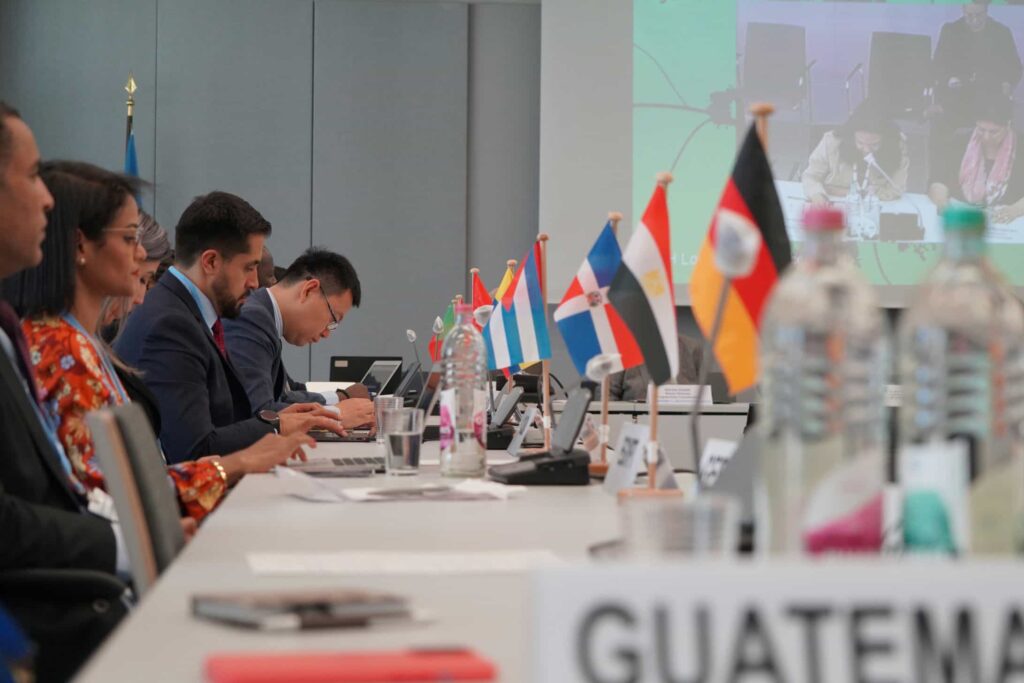UNFCCC SB58 Climate Negotiations
Introduction
The recently concluded UNFCCC SB58 climate talks held in Bonn brought together Parties and Non-Party Stakeholders of the United Nations Framework Convention on Climate Change to continue their negotiations and prepare the agenda in the lead-up to the 28th Conference of the Parties (COP28) in Dubai later this year.
With a focus on advancing climate action, these negotiations laid the groundwork for COP28 including the mitigation work programme (focused on the reduction of greenhouse gas emissions), the global adaptation goals, loss and damage, finance, and the first-ever global stocktake under the Paris Agreement.
In this article, Cairo Climate Talks explores the key outcomes of SB58 and their implications for our future with a particular focus on Non-Party stakeholders.
What are the Subsidiary Bodies?
The UNFCCC Subsidiary Body meetings and climate talks, known as SB58, held in Bonn, took place from 5th to 15th June 2023 and brought together representatives from Parties (Countries) to negotiate key climate change issues. These meetings occur annually in June and at the COP playing. The sessions play a vital role in setting the stage for COP at the end of each year.
Purpose of SB58:
The primary objective of SB58 was to provide a platform for technical negotiations and discussions on scientific, technological, and implementation-related aspects of climate change.
The two main bodies involved were the Subsidiary Body on Scientific and Technological Advice (SBSTA) and the Subsidiary Body on Implementation (SBI). These bodies are responsible for assessing and reviewing scientific findings, exploring technological solutions, and evaluating progress in implementing climate actions.

Chamber Hall, Flicker Account of the UNFCCC
For nine days, the SB58 witnessed challenging negotiations as parties struggled to reach a consensus on various critical issues. The agreement on the Subsidiary Bodies’ agenda was achieved just ahead of the closing plenary sessions, highlighting the complexity of the negotiations. Disagreements emerged on matters such as the framework for the global goal of adaptation, direction-setting for the mitigation work programme, and the allocation of financial resources. While progress was made, it was not uniform across all topics. Nonetheless, important foundations were laid, providing an opportunity for further discussions and decision-making at COP28.
Those foundations include the following:
• Building blocks for the first Global Stocktake (GST) under the Paris Agreement
Paving the way for progress the GST discussions at SB58 set the stage for COP28 in Dubai. The third technical dialogue and roundtable discussions provided valuable insights, addressing topics such as financial flows and means of implementation. In order to achieve the goals of the Paris Agreement, the GST holds the potential to drive global climate action. Respectively, the secretariat will prepare reports on the third technical dialogue by September 2023. This process captures the views of both Parties and Non-Party Stakeholders
• Mitigation Work Programme
Negotiations on the mitigation work programme faced difficulties at SB58, with parties failing to agree on the direction of travel for several key issues. Despite the challenges, the discussions provided an opportunity for parties to express their views, which were captured in an informal note. This note will inform further negotiations at SB59 and COP28 in Dubai. Parties must work towards consensus and find common ground on the mitigation work programme to accelerate global efforts in reducing greenhouse gas emissions.
• Article 6 – Market Mechanisms and Cooperation
SB58 saw colorful descriptions and technical discussions, emphasizing the importance of following a logical sequence and prioritizing tasks for the successful implementation of market mechanisms. Constructive progress was observed regarding Article 6, focusing on market mechanisms and cooperation among parties. Technical matters related to Article 6.2 were deliberated, highlighting the need for practical guidance on cooperative approaches. Progress on Article 6.4 was made, but further discussions are required to address topics such as emission avoidance, conservation enhancements, and the connection between registries. Parties recognized the importance of sequencing and logical decision-making to ensure the effective implementation of market mechanisms.
• Finance, Loss and Damage and Just Transition
Addressing key concerns, finance remained a significant topic of discussion, reflecting its crucial role in supporting climate initiatives. SB58 shed light on the challenges and opportunities associated with financing climate projects, such as the transformation to a low-carbon economy and assisting vulnerable communities to combat climate change effects. Additionally, progress was made on the dialogue concerning loss and damage – one of the key outcomes of COP27 -, paving the way for further discussions at COP28.
• Recognition and Accountability Framework
Engaging Non-State actors and the release of the UNFCCC’s “Recognition and Accountability Framework” for Non-Party stakeholders was a significant development. This framework acknowledges the crucial role of Non-State actors and civil society in driving climate action.

Bonn Climate Change Conference June 2023, Flicker Account of the UNFCCC
Conclusion
The discussions on global stocktaking, finance, market mechanisms, and the recognition of non-state actors underscore the need for collaboration, innovation, and transformative solutions.
The stage is now set for continued efforts at COP28 in Dubai, where stakeholders will work towards tangible actions and policies to address the climate crisis. As we move forward, it is essential for governments, businesses, civil society, and individuals to unite in collective action.
By embracing the outcomes of SB58 and harnessing the power of collaboration and innovation, we can drive meaningful change and create a sustainable future for generations to come.
At the Cairo Climate Talks, we continue to provide a platform and a space for policymakers, experts, civil society, and international and local stakeholders to come together and address global climate challenges across various thematic areas. We encourage participants to share and present innovative local solutions to effectively tackle climate change.
Did you know that UNFCCC is hosted in Bonn, Germany
The United Nations Framework Convention on Climate Change (UNFCCC) is headquartered in Bonn, Germany. Bonn has been the home of the UNFCCC since its inception, serving as the central hub for international climate change negotiations and discussions.
The choice of Bonn as the host city for the UNFCCC is significant for several reasons. Germany, with its strong commitment to environmental protection and sustainable development, has played a leading role in global climate action. By hosting the UNFCCC, Germany demonstrates its dedication to fostering international cooperation and driving climate change solutions.
As the host city of the UNFCCC, Bonn continues to serve as a focal point for global climate action. It symbolizes the collaborative spirit and collective efforts of nations coming together to address the urgent challenges posed by climate change and work towards a sustainable future for all.

Source: Canva Pictures
References:
